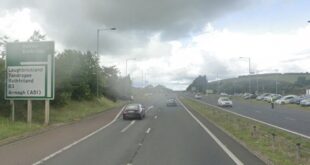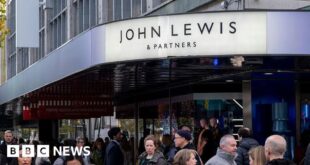Ahead of the general election, politicians from different parties are offering radically different policies, which means that there is a real choice to make on 12 December, says Ian Swanson.
IT may be cold outside, but the election campaign is hotting up with the first head-to-head TV debate tonight and Labour unveiling its manifesto later this week.
Polls show the Conservatives in the lead by anything from eight to 17 points – but there is a long way to go until polling day and gap is likely to narrow between now and December 12.
Elections guru Professor Sir John Curtice has suggested Boris Johnson needs a lead of around ten points to be sure of an overall majority, so the outcome is far from certain.
After early gaffes – Jacob Rees-Mogg’s crass comments about Grenfell – and surprise big-name departures – like former Tory Chancellor Philip Hammond and Labour’s deputy leader Tom Watson – last week’s campaigning was dominated by Boris Johnson’s less-than-enthusiastic reception when he visited flood-hit South Yorkshire, Jeremy Corbyn’s confusion over Labour’s stance on allowing another independence referendum and Nigel Farage’s claims the Tories were trying to buy off the Brexit Party with offers of peerages.
READ MORE: SNP’s exclusion from ITV debate deprives viewers from making own decision, says Nicola Sturgeon
READ MORE: How dare nationalists suggest I am ‘less Scottish’ because I’m a unionist – Christine Jardine
And Labour made the most eye-catching proposal of the campaign so far with its plan to nationalise BT’s Openreach and deliver free full-fibre broadband for all.
Boris Johnson labelled it a “crazed Communist scheme” and business leaders naturally recoiled from the idea of public ownership. But Labour’s proposal is not just about providing easier access to Netflix across the country.
Can’t say politicians are ‘all the same’
Rather it is recognising that, in our modern economy, broadband is now an essential utility and one which the private sector has signally failed to deliver satisfactorily. Despite having the fifth largest economy in the world, the UK is ranked 35th out of 37 countries in how much fibre there is in our broadband infrastructure – less than two per cent compared with over 80 per cent in South Korea.
Labour’s manifesto – expected to be launched on Thursday – will repeat many of the pledges made in the 2017 manifesto, which was seen as a key factor in the party’s stronger-than-expected performance in that election. After years of austerity and cuts, voters were ready to back policies like higher taxes on the rich and big multinational corporations and public ownership of the railways, energy and Royal Mail.
The Tories have not yet said when they will unveil their manifesto. But it is a safe bet they will not be modelling it on the document they presented to voters in 2017. Theresa May’s decision to include, out of the blue, far-reaching proposals on social care, which meant people having to pay more for care at home, was seen as a catastrophic mistake which helped cost her party its Commons majority.
Those in charge of the Conservative campaign in this election are said to be haunted by the 2017 manifesto and the subsequent result. Some say they will delay publication of this year’s manifesto as long as possible to minimise any damage it may do.
The SNP has no need to set out detailed plans in all the policy areas the other parties will cover because, of course, so many of them fall in the remit of the Scottish Parliament.
But the party has made clear its priorities if it holds the balance of power and can influence a minority Labour government. They include not only Indyref2, but also removal of Trident.
It’s not uncommon to hear people complain the parties are “all the same” but there are some radical policies on offer here – and depending on the election outcome, the country could end up taking very different paths.
Source link



